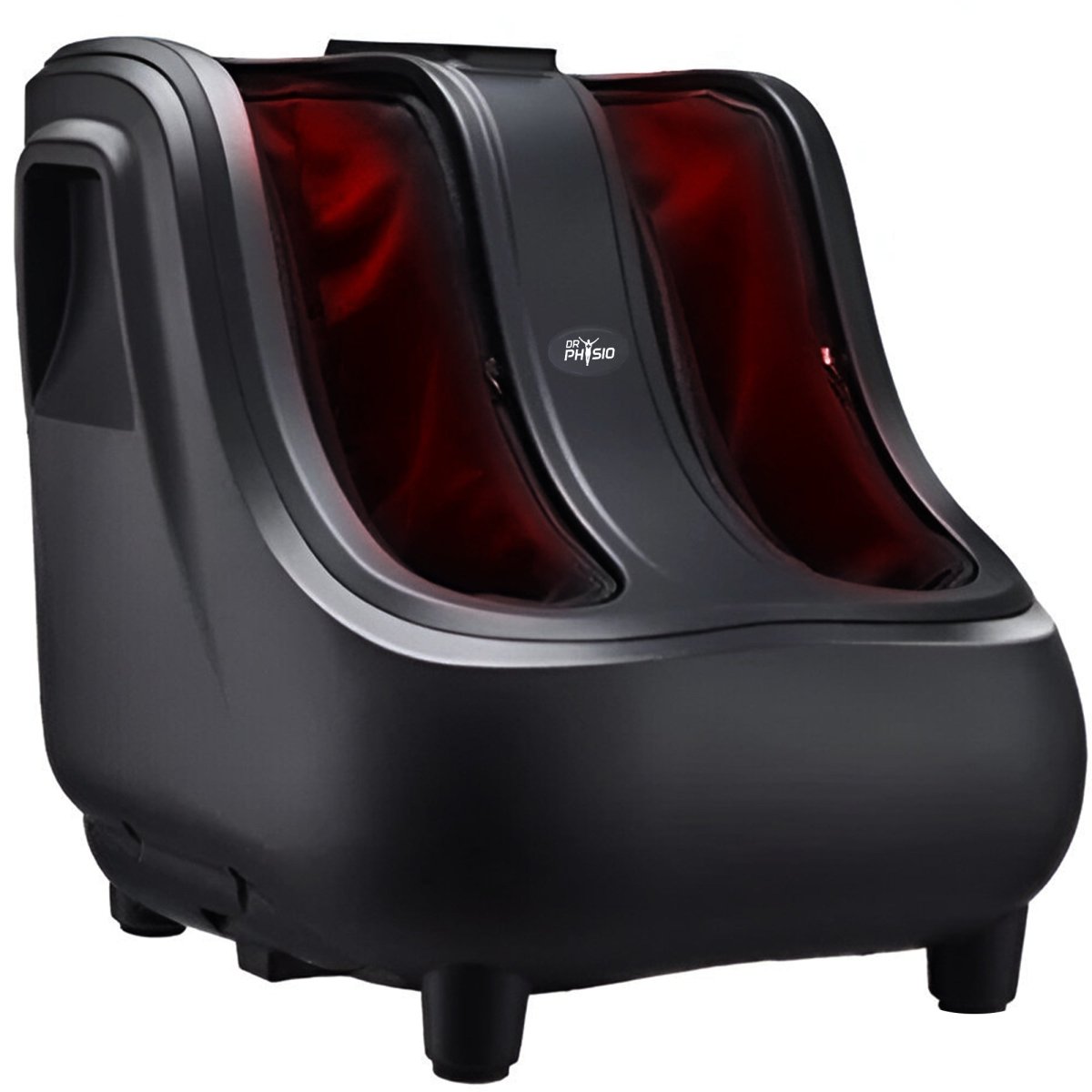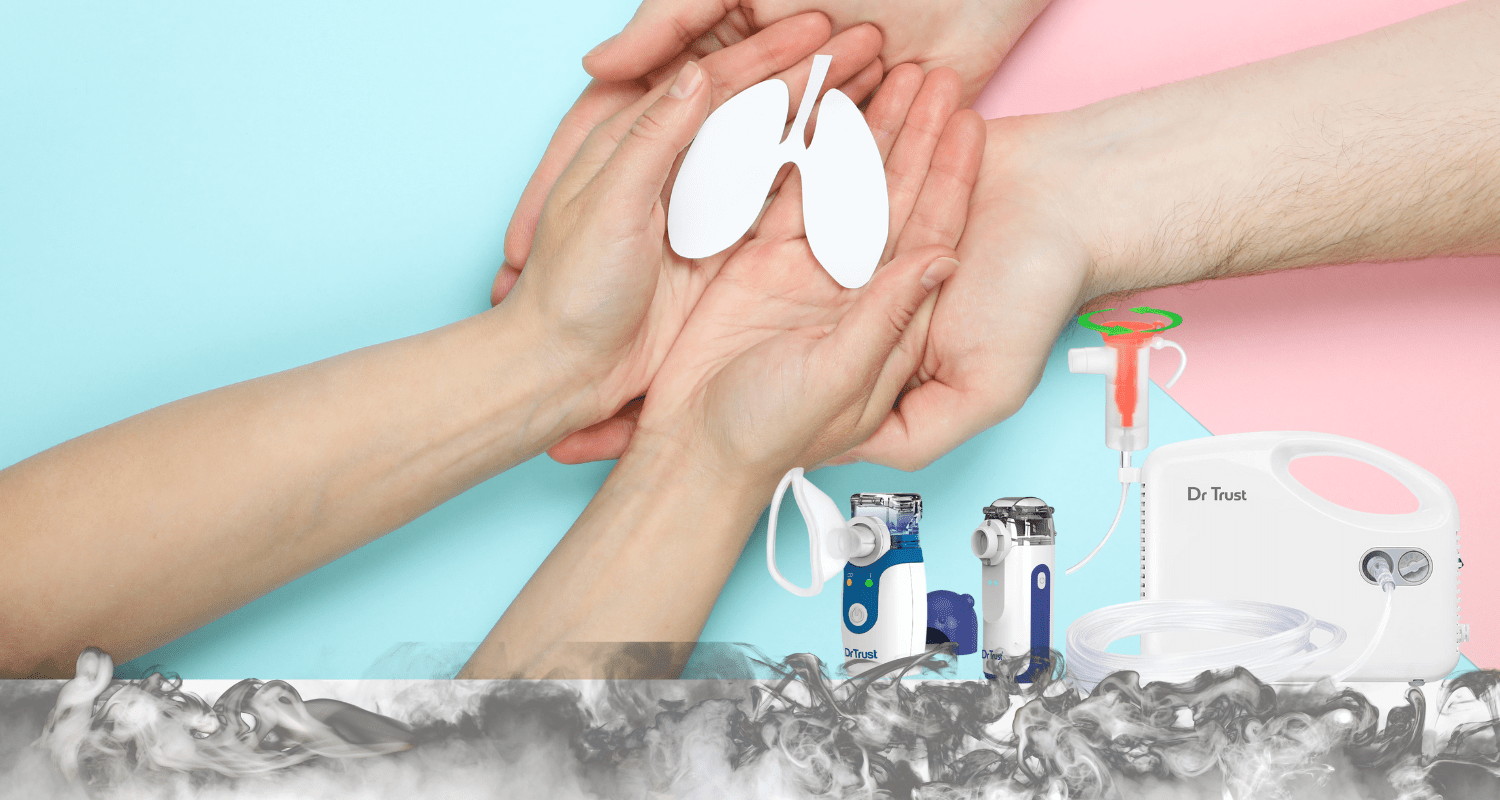Did You Know?
Lung diseases like COPD and lung cancer claim millions of lives annually.
Globally, over 200 crore people are exposed to toxic air pollution every day, risking severe lung damage.
Breathing is the foundation of life, yet many of us overlook how essential clean air is for our lung health. With respiratory conditions such as asthma, COPD, and lung cancer on the rise, understanding the relationship between clean air and lung health has never been more crucial. As we celebrate World Lung Day on September 25, it’s the perfect time to take action to ensure the air we breathe is clean and safe for everyone.
In this blog, we’ll explore the significant connection between air quality and lung health, outline five easy steps you can take to clean up your air at home, and explain how home air filters and nebulizers can protect your lungs from harm.
Why Clean Air is Vital for Lung Health
Lungs are incredibly sensitive organs that continuously filter the air we breathe, exposing them to harmful pollutants, chemicals, and infectious organisms. According to the Forum of International Respiratory Societies (FIRS), lung diseases are one of the leading causes of death globally, and poor air quality is a significant contributor.
Facts to Reflect On
Facts check reference is here
India also faces a significant burden of asthma, with 34.3 million people affected, accounting for 13.09% of the global asthma cases. According to the latest Global Burden of Disease 2021 Report, India contributes to a staggering 46% of global asthma deaths, up from 43% in 2019.
While asthma is a growing concern, lung cancer continues to be the number one cancer killer worldwide, claiming 1.6 million lives annually. It's clear that respiratory health needs immediate attention, especially in countries like India where the burden of lung diseases is disproportionately high.
Poor Air Quality Is Driving the Surge in Lung Issues
Lung issues are on the rise, and poor air quality—both indoors and outdoors—is a major culprit. Emissions from vehicles, industrial waste, and the burning of wood and trash release harmful pollutants into the air we breathe. These pollutants can trigger chronic lung conditions like asthma, chronic obstructive pulmonary disease (COPD), and even lead to serious respiratory infections. Over time, prolonged exposure to these toxic particles increases the risk of lung cancer as well. Whether you're inside your home or outside, ensuring clean air is crucial to protecting your lungs and overall health.
Five Simple Steps to Clean Up Your Air
Fortunately, there are several actionable steps you can take to improve the air quality in your home and create a healthier environment for your lungs.
Step 1. Keep Indoor Spaces Well-Ventilated
Proper ventilation allows fresh air to flow inside and reduces the buildup of indoor pollutants. Open windows when cooking or cleaning and use exhaust fans to keep the air circulating.
Step 2. Avoid Smoking Indoors
Tobacco smoke is one of the most dangerous pollutants for lung health. Even secondhand smoke can significantly increase the risk of respiratory diseases, particularly in children and elderly individuals.
Step 3. Limit the Use of Chemical Cleaners
Many household cleaners release Volatile Organic Compounds (VOCs) into the air, which can irritate the lungs. Switch to natural cleaning solutions or those with low VOC content to minimize the chemical load on your lungs.
Step 4. Maintain Humidity Levels
High humidity encourages the growth of mold and dust mites, which can exacerbate asthma and other lung conditions. If you start using a dehumidifier, it helps to keep indoor humidity levels between 30-50%.
Step 5. Air Filters Help To Protect Your Lungs
Did You Know?
Homes equipped with air filters can reduce lung-related illnesses by up to 30%!
A cleaner air supply means less strain on your lungs and a reduced risk of developing chronic lung diseases or worsening pre-existing conditions like asthma and COPD. Looking to breathe cleaner air at home? A high-quality air filter can make all the difference! Home air filters are essential tools for improving air quality by removing pollutants that pose a threat to lung health. By using HEPA or activated carbon filters, you can effectively capture harmful airborne particles. They can eliminate up to 99.97% of allergens, dust, viruses, bacteria, and even chemical compounds from the air you breathe.
Invest in a High-Quality Air Filter
If you're considering a home air purifier, the Dr Trust Zurich Air Purifier is a great option. It features real-time air quality indicators, a 12-hour timer, sleep mode, and more—keeping your home a healthier space for you and your loved ones.
Want to learn more? Click here!
The Role of Nebulizers in Managing Lung Conditions
For individuals already facing lung issues, such as asthma or chronic bronchitis, nebulizers offer a critical line of defense. Nebulizers convert liquid medication into a fine mist, allowing it to be inhaled directly into the lungs for fast and effective relief.
Nebulizers can:
- Open airways quickly during an asthma attack.
- Deliver medications to help reduce inflammation and ease breathing.
- Provide comfort to those with chronic lung conditions like COPD.
By using a nebulizer at home, along with maintaining clean air, you can reduce the frequency and severity of respiratory symptoms, leading to a better quality of life. Dr Trust offers a range of compact, portable nebulizers—perfect for treating asthma, colds, and other seasonal symptoms, even while you’re on the go.
Curious about the benefits? Check out Dr Trust Nebulizers and buy online with doorstep delivery across India!
Healthy Lungs, Healthy Life: Take Charge of Your Air Quality Today!
FAQs
1. Why is clean air important for lung health?
Clean air reduces exposure to harmful pollutants like dust, pollen, mold, and chemicals, which can cause or worsen lung diseases such as asthma, COPD, and lung cancer. Breathing clean air helps your lungs function better and reduces the risk of developing respiratory conditions.
2. How can I improve air quality in my home?
You can improve indoor air quality by using air filters, ventilating your home, avoiding smoking indoors, using natural cleaning products, and maintaining proper humidity levels.
3. What type of air filter is best for cleaning home air?
HEPA (High-Efficiency Particulate Air) filters are the most effective for removing airborne particles such as dust, pollen, pet dander, and mold, capturing up to 99.97% of particles.
4. How does a nebulizer help with lung issues?
A nebulizer converts liquid medication into a mist that is easy to inhale directly into the lungs. It’s commonly used for asthma, COPD, and other respiratory conditions to deliver fast and effective treatment, opening airways and relieving symptoms.
5. Can using a home air filter prevent lung diseases?
While air filters cannot completely prevent lung diseases, they significantly reduce indoor air pollutants that can trigger or worsen respiratory issues, helping to protect your lungs from harmful irritants.
6. Is outdoor air or indoor air more harmful to lung health?
Both indoor and outdoor air can be harmful, depending on the environment. However, indoor air can sometimes be more polluted due to limited ventilation, use of chemicals, and presence of dust, mold, and allergens. That’s why improving indoor air quality is critical for lung health.
7. What are some common symptoms of lung issues caused by poor air quality?
Symptoms include coughing, shortness of breath, wheezing, chest tightness, fatigue, and frequent respiratory infections. Prolonged exposure to poor air quality can lead to chronic conditions such as asthma or COPD.
Our lungs play a vital role in maintaining overall health, but they are constantly under threat from the pollutants in the air we breathe. As we celebrate World Lung Day, it’s a reminder that simple actions can make a big difference in protecting our lung health. By improving air quality through home air filters, reducing exposure to harmful chemicals, and using tools like nebulizers to manage lung conditions, we can take significant steps toward a healthier, lung-friendly environment.
So, take a deep breath—clean air is your first step toward lung wellness.













3 comments
Laurent
Helpful breakdown of MVHR and cMEV systems. Easy to follow and very informative for anyone exploring ventilation options. — Lufitat
Helpful breakdown of MVHR and cMEV systems. Easy to follow and very informative for anyone exploring ventilation options. — Lufitat
sunnygoud
Great tips! Clean air really does make a big difference. I’ve also seen Dr. Kishan Srikanth emphasize similar steps for maintaining strong lung health — simple habits can go a long way.
Great tips! Clean air really does make a big difference. I’ve also seen Dr. Kishan Srikanth emphasize similar steps for maintaining strong lung health — simple habits can go a long way.
sunnygoud
Very helpful post! Clean air really does make a big difference for our lungs. I’ve been following some of these steps and also came across great insights from Dr. Kishan Srikanth—his advice on respiratory health is truly practical and easy to follow.
Very helpful post! Clean air really does make a big difference for our lungs. I’ve been following some of these steps and also came across great insights from Dr. Kishan Srikanth—his advice on respiratory health is truly practical and easy to follow.